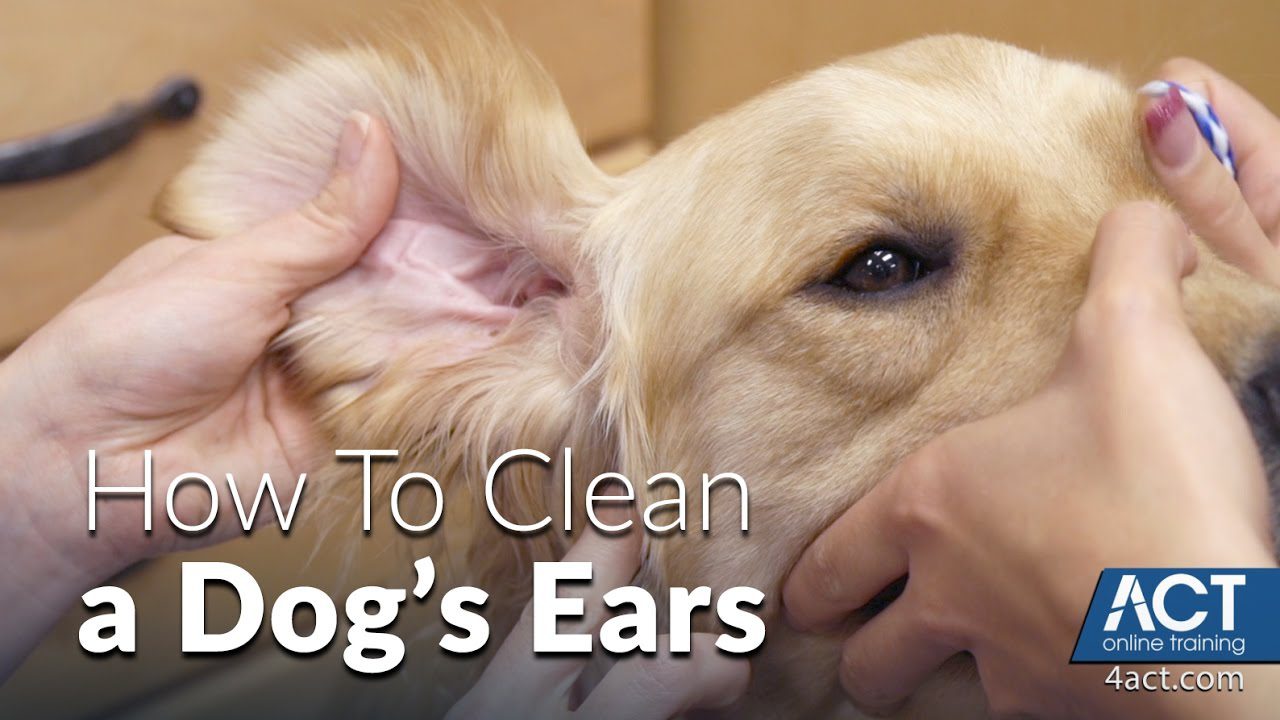Key Takeaways:
- Regular ear cleaning is important for maintaining your cat's overall health and preventing ear infections.
- Use a specially formulated cat ear cleaner recommended by your veterinarian to avoid any potential harm or irritation to your cat's ears.
- Gently clean the visible parts of the outer ear using a cotton ball or pad, being careful not to insert anything deep into the ear canal.
- Inspect your cat's ears regularly for any signs of redness, swelling, discharge, or foul odor, which may indicate an underlying issue that requires veterinary attention.
- If you notice excessive wax buildup or persistent ear problems, consult with your veterinarian for a thorough examination and appropriate treatment.
Do you want to ensure your furry friend's health and happiness? Then, it's time to dive into the world of ear care for cats! Taking proper care of your cat's ears not only prevents discomfort and infections but also strengthens the bond between you and your feline companion. Did you know that 20% of cats suffer from ear problems at some point in their lives? By understanding how to clean your cat's ears right, you can be proactive in safeguarding their well-being. In this article, we will guide you through eight simple steps to keep your cat's ears clean and healthy. So, let's embark on this journey together and give your beloved pet the care they deserve!
Why is it important to clean your cat's ears regularly?
Regularly cleaning your cat's ears is essential for their overall health and well-being. Cats are prone to ear infections, especially those with long hair or floppy ears. By cleaning their ears, you can prevent the buildup of dirt, wax, and debris that can lead to infections. Cleaning also helps remove any parasites like mites that may be present in the ear canal.
Cleaning your cat's ears regularly can also help you detect any early signs of infection or other issues. By examining their ears during the cleaning process, you may notice redness, swelling, discharge, or a foul odor - all potential indicators of an underlying problem. Catching these issues early allows for prompt treatment and prevents them from worsening.
Signs that indicate your cat may need their ears cleaned
It's important to keep an eye out for signs that your cat may need their ears cleaned. Some common indicators include:
- Frequent scratching or pawing at the ears
- Tilting or shaking of the head
- Increased sensitivity when touched near the ears
- Discharge or a bad odor coming from the ears
- Redness or swelling in or around the ear canal
If you notice any of these signs, it's a good idea to check your cat's ears and consider cleaning them if necessary.
Materials needed to clean your cat's ears properly
To clean your cat's ears effectively, you will need a few materials:
- Cotton balls or pads: These are gentle enough to use on your cat's delicate ear tissue.
- Cat-specific ear cleaning solution: Avoid using human products, as they may be too harsh for your cat's ears.
- Tweezers (optional): These can be helpful for removing any visible debris or excess hair from the outer ear.
- A towel or blanket: This will provide a comfortable surface for your cat during the cleaning process and help prevent them from slipping.
Having these materials ready before you start will ensure a smooth and efficient cleaning experience for both you and your cat.
Proper way to hold your cat while cleaning their ears
Holding your cat properly while cleaning their ears is crucial to ensure their comfort and safety. Here's a step-by-step guide:
- Find a quiet, calm area where you can comfortably sit with your cat.
- Gently place one hand under your cat's chest, supporting their body weight.
- With your other hand, hold the base of your cat's head firmly but gently to prevent excessive movement.
- If needed, use a towel or blanket to wrap around your cat to help keep them secure and calm during the process.
This proper holding technique will make it easier for you to access and clean your cat's ears while minimizing any discomfort or stress for them.
Cotton swabs or Q-tips: Can you use them to clean your cat's ears?
No, it is not recommended to use cotton swabs or Q-tips to clean your cat's ears. The ear canal is delicate, and inserting anything into it can potentially cause injury. Cotton swabs also have the risk of pushing debris further into the ear canal instead of removing it.
Using cotton swabs or Q-tips can also be uncomfortable for your cat, leading to resistance and potential harm. It's best to stick to using gentle materials like cotton balls or pads that are designed specifically for cleaning cat ears.
Steps to follow for effective cat ear cleaning
To clean your cat's ears effectively, follow these steps:
- Gently hold your cat in the proper position as described earlier.
- Squeeze a small amount of the cat-specific ear cleaning solution into the ear canal. Follow the instructions on the bottle for the appropriate dosage.
- Gently massage the base of your cat's ear for about 20-30 seconds. This helps distribute the cleaning solution and loosen any debris or wax.
- Allow your cat to shake their head if they need to. This helps remove loosened debris from the ear canal.
- Use a cotton ball or pad to gently wipe away any visible dirt, wax, or discharge from the outer part of the ear. Avoid inserting anything into the ear canal.
- Repeat these steps on the other ear if necessary.
Remember to always praise and reward your cat with treats or affection after each successful cleaning session to create positive associations with the process.
Risks and dangers of incorrect cat ear cleaning
Incorrectly cleaning your cat's ears can lead to various risks and dangers, including:
- Injury: Inserting objects like cotton swabs too far into the ear canal can cause damage to delicate tissues and potentially lead to pain, bleeding, or infection.
- Infection: If you introduce bacteria or other contaminants into your cat's ears during the cleaning process, it can increase the risk of infection.
- Increased stress: Mishandling or causing discomfort during ear cleaning can make your cat fearful or anxious, making future cleaning sessions more challenging.
To avoid these risks, it's important to follow proper techniques and use appropriate materials when cleaning your cat's ears. If you're unsure or concerned about your cat's ears, consult with a veterinarian for guidance.
How often should you clean your cat's ears for good ear care?
The frequency of ear cleaning for cats can vary depending on their individual needs. In general, it is recommended to clean your cat's ears once every 1-2 months as a preventive measure. However, certain factors may require more frequent cleanings:
- Cats with long hair: They may need more frequent cleanings due to increased wax and debris accumulation.
- Cats with floppy ears: Breeds like Scottish Folds or Persians are prone to ear infections and may benefit from more regular cleanings.
- Cats with known ear issues: If your cat has a history of recurring ear infections or other ear problems, your veterinarian may recommend more frequent cleanings as part of their treatment plan.
It's always best to consult with your veterinarian for personalized advice on how often you should clean your specific cat's ears to ensure optimal ear care.
In conclusion, it is important to clean your cat's ears regularly to prevent infections and discomfort. By following the 8 steps provided, you can ensure proper ear care for your furry friend and maintain their overall health and well-being.
What is the brown stuff in my cat's ears?
If your cat is scratching their ear, you might observe some black or brown particles being expelled. There might also be a small amount of seepage from their ear. Upon examining their ear, you may notice black or brown secretions resembling coffee. All of these signs indicate the presence of mites.
Can I put hydrogen peroxide in my cats ear?
Using hydrogen peroxide and vinegar solutions as home remedies for cat ear infections is not advised, as they can often lead to increased irritation and discomfort. It is important to be cautious with the amount of liquid used, as cats are more sensitive to having fluid in their ears compared to dogs, and excessive fluid can cause coordination issues.
How often should I wash my cats ears?
Clean your cat's ears only if there is a small to moderate amount of debris or discharge visible in the outer ear, and if the eardrum is undamaged. It is recommended to clean the ears as necessary, typically every 2-3 months. Cleaning too frequently can cause irritation. Generally, healthy cats do not require regular ear cleaning.
Is olive oil good to clean cats ears?
If your pet's ears are red, have a foul smell, or if they are scratching or shaking their head, it is important to take them to the veterinarian for proper care. Oils such as olive oil, mineral oil, or coconut oil can be used safely, and olive oil can effectively kill ear mites by suffocating them, although it may take several weeks to completely clear the mites using this method.
Can I use Dawn to clean my cats ears?
Although Dawn dish soap can effectively kill ear mites, it is not advisable to use it for bathing cats. Cats are very clean animals and groom themselves regularly, so bathing them is usually unnecessary.
How do you get the black stuff out of a cat's ear?
Cleaning: Before applying any medication, it is important to completely remove the black, waxy ear build-up and dirt from the ear canal. We highly recommend that pet owners have their veterinarian perform the initial cleaning to ensure all debris is removed and to prevent any harm to their cat's sensitive ear drum.
















